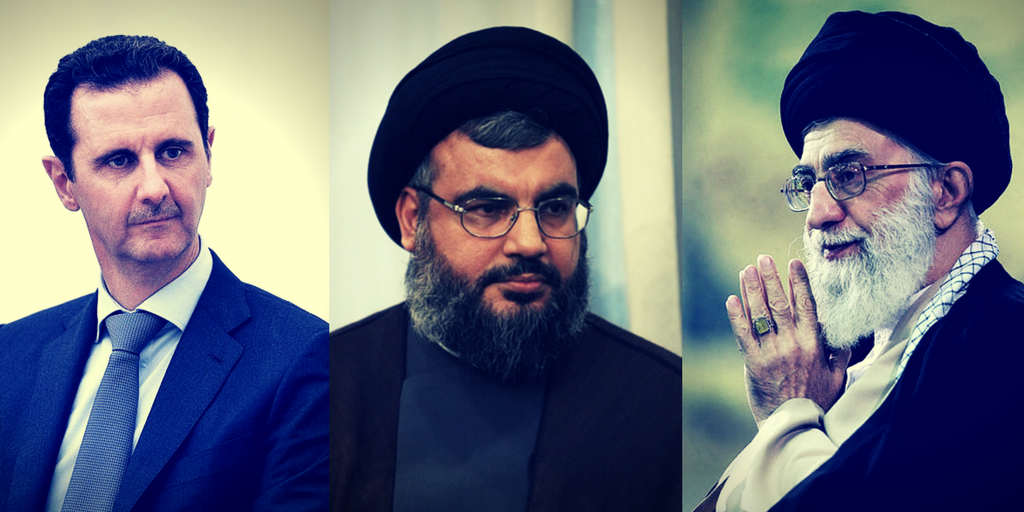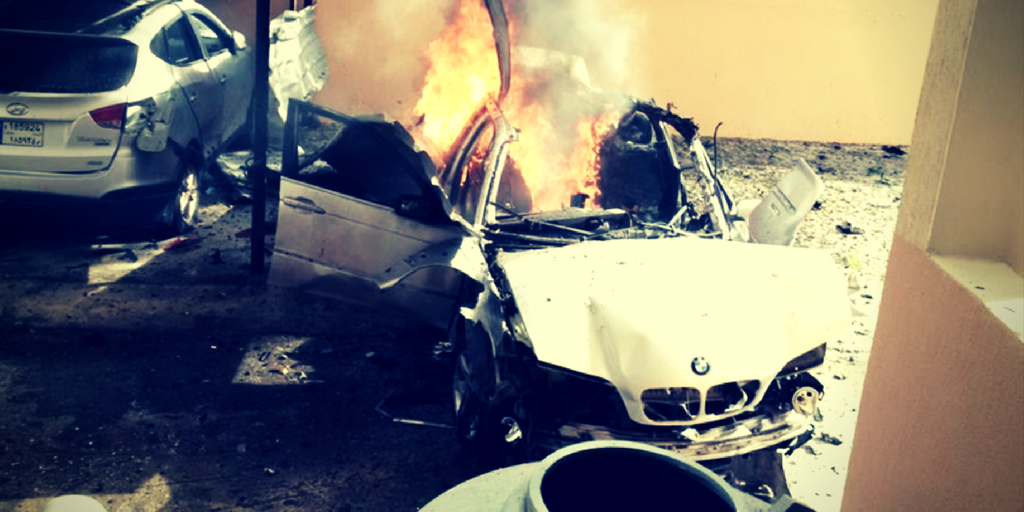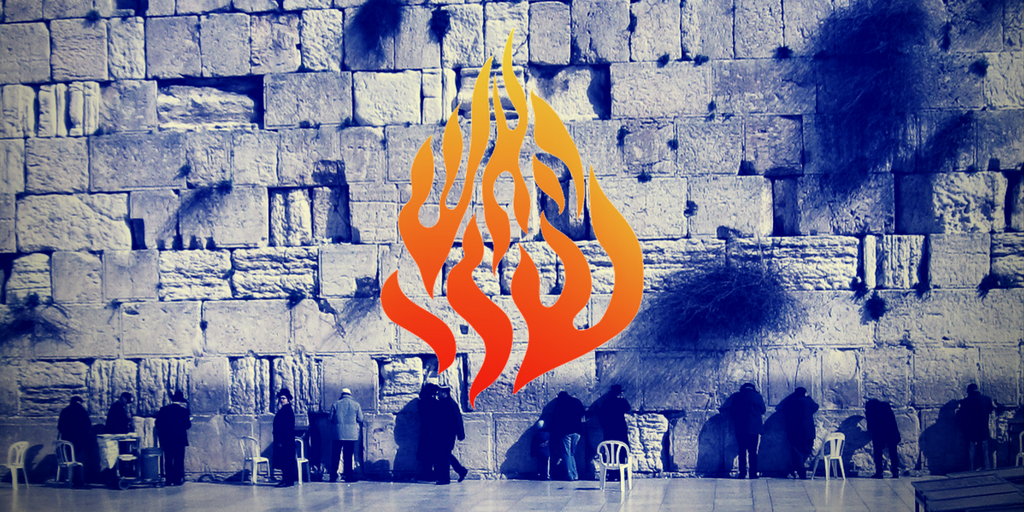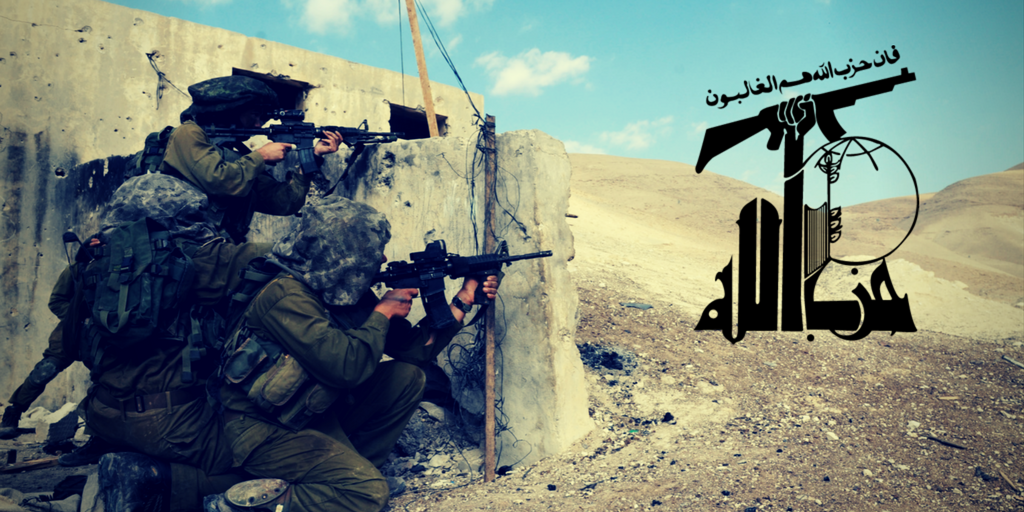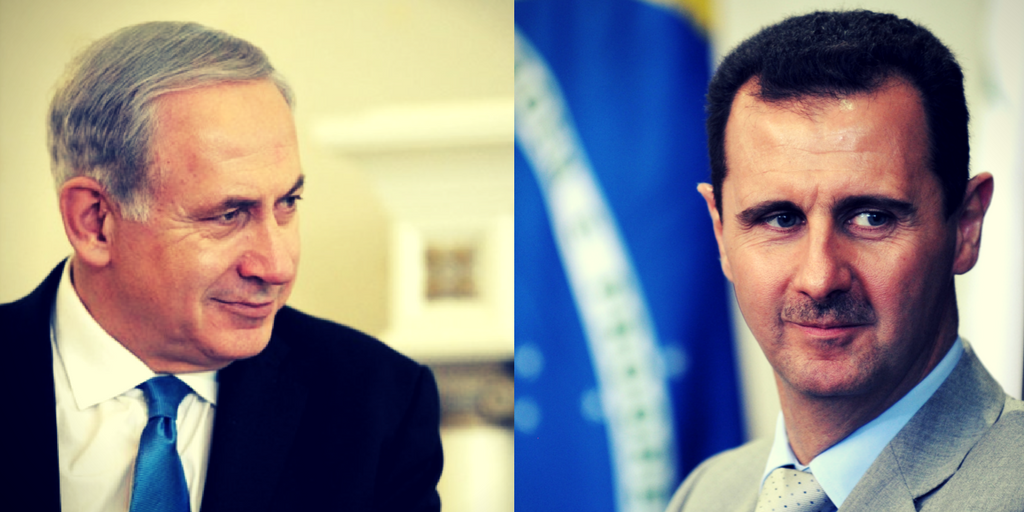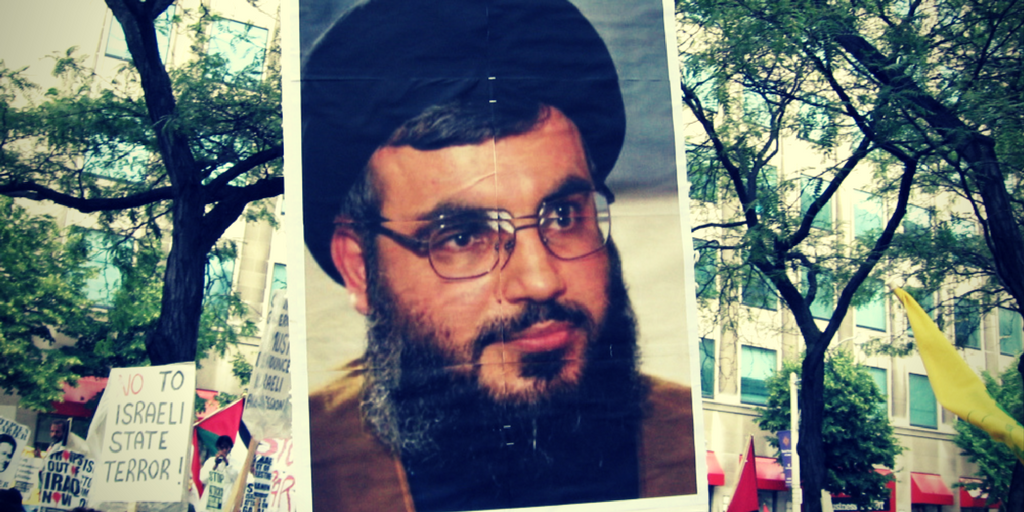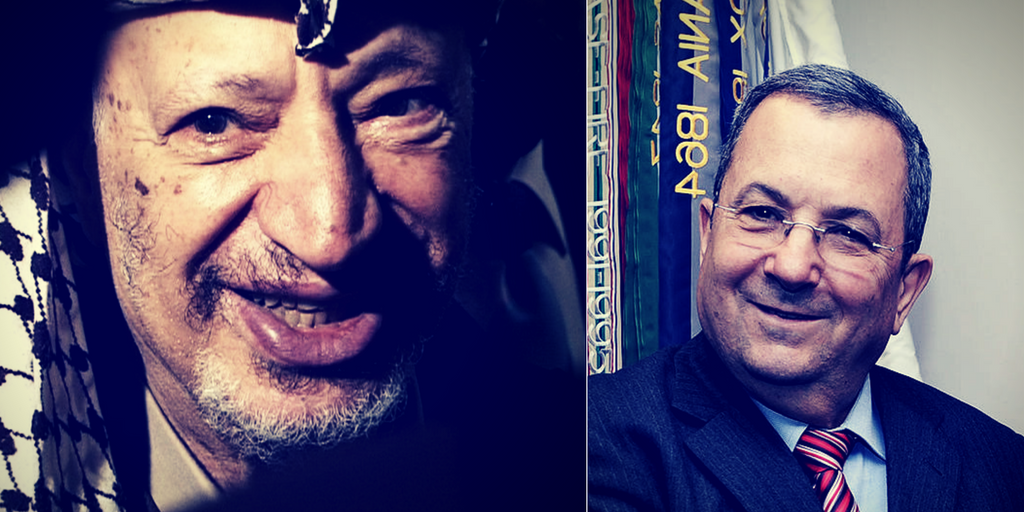If we aren’t indifferent to Hezbollah’s expansion of its capabilities, what are we planning to do about it?
Last month IDF Military Intelligence chief Maj.-Gen. Herzl Halevi made a stunning revelation. Hezbollah and Iran are transforming the terrorist group into a military force capable of independently producing its own precision weapons.
Speaking at the Herzliya Conference, Halevi reported, “We are seeing Hezbollah building a domestic military industry on Lebanese soil based on Iranian know-how. Hezbollah is producing weapons systems and transporting them to southern Lebanon.”
Halevi added, “Over the past year, Iran is working to establish infrastructure for the independent production of precision weapons in Lebanon and Yemen. We cannot be indifferent to this development. And we aren’t.”
Not only is Hezbollah building a missile industry. It is deploying its forces directly across the border with Israel – in material breach of UN Security Council Resolution 1701 from 2006, which set the terms of the cease-fire between Israel and Hezbollah at the end of the Second Lebanon War.
Under the terms of 1701, Hezbollah is prohibited from operating south of the Litani River. Only the Lebanese Armed Forces (LAF) and UNIFIL – the UN’s peacekeeping force – are supposed to be deployed in southern Lebanon.
According to Halevi, operating under the cover of a phony environmental NGO called “Green Without Borders,” Hezbollah has set up observation posts manned with its fighters along the border with Israel.
In Halevi’s words, with these posts, “Hezbollah is now able to operate a stone’s throw from the border.”
In a media briefing on Sunday, Defense Minister Avigdor Liberman discussed Halevi’s revelations. Liberman said that the security community “is absolutely aware [of the missile plants] and is taking the necessary action.”
“This is a significant phenomenon,” Liberman warned. “We must under no circumstances ignore it.”
Perhaps in a jab at his predecessor, Moshe Ya’alon, who years ago argued notoriously that Hezbollah’s missiles would “rust” in their storage facilities, perhaps in warning to Hezbollah, Liberman added, “The factories won’t rust and the missiles won’t rust.”
So if we aren’t indifferent to Hezbollah’s expansion of its capabilities, what are we planning to do about it?
Whatever answer the IDF decides upon, Israel is already taking diplomatic steps to prepare for the next round – whoever opens it.
Last month Israel filed a formal complaint with the UN Security Council against Hezbollah for setting up observation towers along the border and manning them with its fighters.
Not surprisingly, UNIFIL and the Security Council rejected Israel’s complaint. Ever since six UNIFIL soldiers were killed in a roadside bomb in 2007, UNIFIL has turned a blind eye to all of Hezbollah’s operations in southern Lebanon. As to the strike for which the complaint to the Security Council began setting the conditions, what purpose would it serve?
In a future war, Israel shouldn’t aspire, for instance, to destroy Hezbollah as a fighting force. The goal, in my opinion, should be to destroy or neutralize as much of Hezbollah’s missile arsenal and its missile assembly plants as possible. If possible, Israel should also seek to destroy Hezbollah’s tunnel infrastructure along its border.
The first question is whether the threat justifies action. The answer, in my opinion, is clear enough. Over the past 11 years, Hezbollah’s missile arsenal has become an unacceptable and ever-growing strategic threat to Israel. Whereas in 2006 Hezbollah’s missile arsenal numbered some 15,000 rockets, today it fields approximately 150,000.
In 2006, at the height of its missile offensive against Israel, Hezbollah lobbed some 120 missiles a day at Israeli territory. Today it can shoot some 1,000 to 1,200 missile a day at Israel.
And it isn’t only the quantity of missiles that make them an insufferable threat. It’s also their quality. Whereas in 2006 Hezbollah attacked Israel with imprecise projectiles with low payloads, today Hezbollah reportedly fields precision guided, long-range missiles like the Yakhont and Fatah-110.
The Yakhont missiles can imperil Israel’s interests in the Mediterranean, including its offshore natural gas installations. The Fatah-110s, with a range of some 300 kilometers, threaten metropolitan Tel Aviv and key military installations. Both missile types are capable of carrying payloads of hundreds of kilograms of explosives.
To be sure, in the 11 years since the Second Lebanon War Israel has also massively upgraded its military capabilities. Last week air force chief Maj.-Gen. Amir Eshel said the force today can inflict a level of damage on Hezbollah in two days that it took it weeks to inflict in 2006.
The question is not whether Israel has the ability to respond to a Hezbollah assault. Given the lethality of Hezbollah’s arsenal, it would be reckless to assume that Israel can easily absorb an opening volley of missiles.
But battle losses aren’t the only consideration Israel needs to take into account. For instance, there is the US. How would the US respond to a war?
As far as the Trump administration is concerned, the picture is mixed. On the one hand, President Donald Trump and his advisers are much more supportive of Israel than predecessor Barack Obama and Obama’s advisers were.
Under Obama, not only could Israel have expected the US to oppose an attack against Hezbollah’s missiles, but there is reason to believe that the Obama administration would have supported Hezbollah against Israel.
This is the case for two reasons. First, Obama’s team made clear that his most important foreign policy goal was to develop an alliance with Iran.
Second, and in support of Obama’s goal of courting the Iranians, his administration repeatedly leaked details about IDF strikes against Hezbollah weapons convoys traversing Syria en route to Lebanon. These leaks worked to Israel’s detriment and to Hezbollah’s advantage by ratcheting up the danger that Israel’s strikes at Hezbollah convoys would lead to an undesired escalation of hostilities.
At a minimum, Israel can expect that the Trump administration’s response to a war with Hezbollah in Lebanon to be as tolerant as then president George W. Bush’s administration’s response was to Israel’s military actions in the 2006 war.
Bush and then-secretary of state Condoleezza Rice immediately called for a ceasefire. But in the early stages of the war, they also supported Israel and blocked anti-Israel resolutions from being brought before the Security Council. Their support for Israel began to weaken as the war dragged on and the IDF ran into trouble achieving significant battlefield gains.
Today, the Trump administration is divided on issues surrounding Israel. Trump’s White House advisers, led by Steve Bannon as well as Vice President Mike Pence and UN Ambassador Nikki Haley, are likely to support a war with Hezbollah. Secretary of State Rex Tillerson and Secretary of Defense James Mattis are likely to demand that Israel stand down.
One way to diminish opposition within the administration to a war is to highlight the depths of Hezbollah’s control of the Lebanese government and of the Lebanese military. The latter is particularly significant.
The foreign and defense policy establishment in Washington, with which Tillerson and Mattis are aligned, insistently continue to back the Lebanese Armed Forces, despite the fact that it is demonstrably subservient to Hezbollah.
As recently as May, the US sent assault rifles to the LAF, in its latest batch of military assistance. The strategic recklessness of continued US weapons transfers to the LAF was laid bare last November. US-made armored personnel carriers, identical to the type the US has provided the LAF, participated in a Hezbollah military parade in Syria.
Indeed, barely a week goes by without new evidence of the LAF’s subservient position to Hezbollah. This week, for instance, 150 LAF cadets toured Hezbollah’s military museum with Lt.-Col. Ali Ismail, who serves as the head of the LAF’s intelligence directorate in Nabatiya.
As for Iran, it is hard to know how it would respond. There is a low likelihood that Iran would strike Israel directly with ballistic missiles in the event of a war with Hezbollah. Iran views Hezbollah’s missiles as a means to deter Israel from attacking Iran – not the other way around.
Iran’s most likely immediate response to a war would be to deploy its foreign militia to Hezbollah’s side in Lebanon. Last month, Hezbollah chief Hassan Nasrallah publicly asked Iran to send him foreign fighters from Afghanistan, Pakistan, Iraq, Yemen and Iran.
Nasrallah’s request, and the likelihood that Iran will grant it in short order, are another reason why war will eventually happen. Israel shouldn’t stand around while Iran sends thousands of fighters to Lebanon to join the next war against it.
As for the Saudis and Egyptians and their allies, they have been clear that they view Iran and Hezbollah as a greater threat than Israel. Indeed, last year they declared Hezbollah a terrorist group. In 2006, they supported Israel until it began getting bogged down.
In a future war, if Israel is able to quickly deliver a serious blow against Hezbollah, the Sunnis would likely applaud it. So it boils down to capacity.
If the IDF can conduct a quick, effective operation against Hezbollah that would destroy, degrade or neutralize a large portion of its missile arsenal and its missile assembly plants, then the benefits of moving forward, in my opinion, outweigh the costs.

